Trump official tells Supreme Court: Businesses should be free to put up ‘no gay couples’ signs
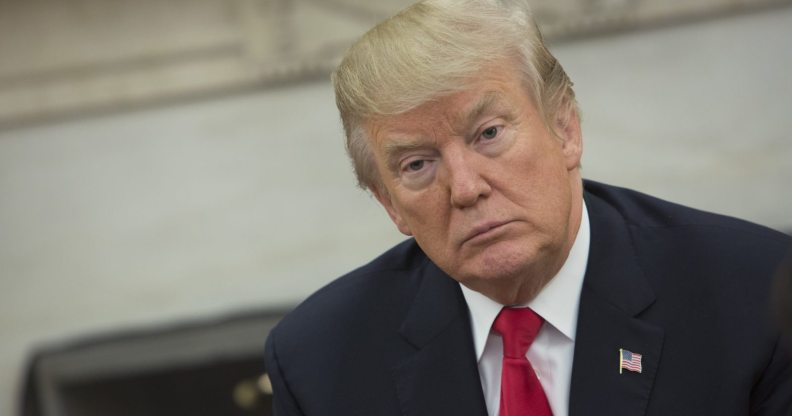
(Getty)
Donald Trump’s Solicitor General claimed it should be acceptable for artistic businesses to put up ‘we do not serve gay couples’ signs while appearing before the Supreme Court today.
Today, the US Supreme Court heard oral arguments in the case of a religious baker, represented by an evangelical law firm seeking to undermine state-level LGBT discrimination protections.
Jack Phillips of Colorado’s Masterpiece Cakeshop launched a legal challenge to Colorado’s anti-discrimination laws after refusing to serve gay couple David Mullins and Charlie Craig.
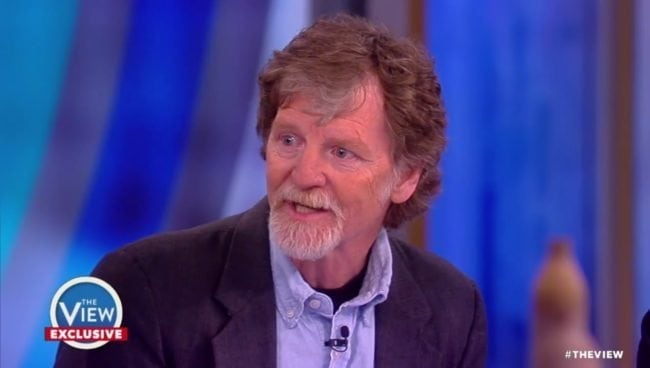
The baker refused to make a cake for the couple after he found out they were celebrating their wedding.
Mr Phillips claims that Jesus Christ would discriminate against gay people, and continues to insist his religion requires discrimination against gay people.
LGBT campaigners say that if the court sides with Mr Phillips, the case threatens to blow a hole in decades of civil rights laws and anti-discrimination protections across the US.
As the Supreme Court heard the case, Solicitor General of the United States Noel Francisco delivered oral arguments as part of the baker’s defence on behalf of the Trump administration.
Appearing before the court, Francisco likened the gay wedding to the KKK.
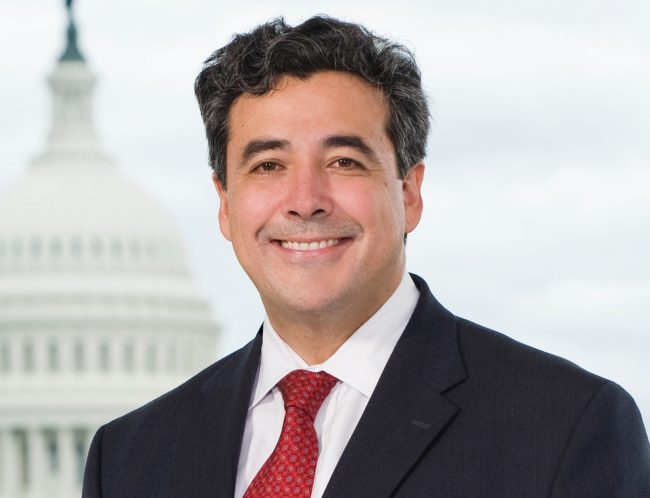
He said: “This case raises an important issue for a small group of individuals; namely, whether the state may compel business owners, including professional artists, to engage in speech in connection with an expressive event like a marriage celebration to which they’re deeply opposed.”
He added: “Is the thing that’s being regulated something we call protected speech? I think the problem for my friends on the other side is that they think the question doesn’t even matter. So they would compel an African American sculptor to sculpt a cross for a Klan service.”
The Trump official claimed it was “a narrow category of services that do cross the threshold into protected speech”.
Incredibly, Francisco appeared to answer in the affirmative when Justice Kennedy asked if the baker could “put a sign in his window [saying] ‘we do not bake cakes for gay weddings”.
Francisco said: “Your Honor, I think that he could say he does not make custom-made wedding cakes for gay weddings, but most cakes would not cross that threshold.”
Asked if the argument was an “affront to the gay community”, Francisco added: “I agree that there are dignity interests at stake here, and I would not minimize the dignity interests to [the gay couple] one bit, but there are dignity interests on the other side here too.”
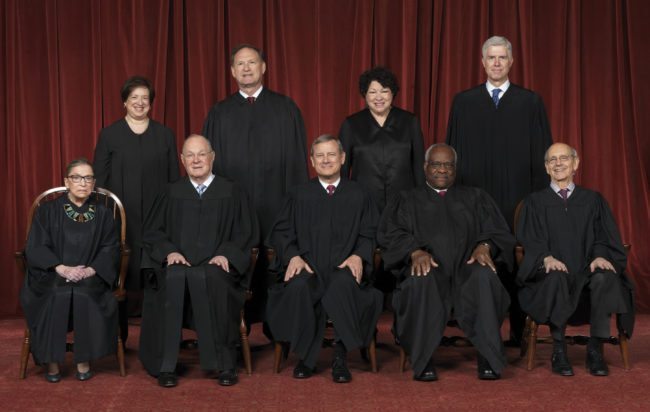
The Supreme Court justices
Justice Sotomayor latched on to the claim.
She said: “We live in a society with competing beliefs, and all of our cases have always said where LGBT people have been humiliated, disrespected, treated uncivilly.
“The briefs are filled with situations that the gay couple who was left on the side of the highway on a rainy night, people who have been denied medical treatment or whose children have been denied medical treatment because the doctor didn’t believe in same-sex parenthood, et cetera.
“We’ve always said in our public accommodations law we can’t change your private beliefs, we can’t compel you to like these people, we can’t compel you to bring them into your home, but if you want to be a part of our community, of our civic community, there’s certain behaviour, conduct
you can’t engage in.
“And that includes not selling products that you sell to everyone else to people simply because of their either race, religion, national origin, gender, and in this case sexual orientation.
“So we can’t legislate civility and rudeness, but we can and have permitted it as a compelling state interest legislating behaviour.”
The Trump official responded: “We don’t think you can force a speaker to join the parade.
“Because when you force a speaker to both engage in speech and contribute that speech to an expressive event that they disagree with, you fundamentally transform the nature of their message from one that they want to say to one that they don’t want to say.”
Elsewhere, Supreme Court Justice Kagan asked whether any extension of rights for “artistic expression” could be used more widely to license discrimination.
She asked: “How do you draw a line? How do you decide, oh, of course, the chef and the baker are on one side, and the florist is on that side, the chef, the baker, the florist, versus the hairstylist or the makeup artist?
“I mean, where would you put a tailor, a tailor who makes a wonderful suit of clothes? Where does that come in? The baker is engaged in speech, but the chef is not engaged in speech?”
Justice Kagan also asked whether the hypothetical exemptions from anti-discrimination laws would apply to people who object to interracial or interreligious marriage on religious grounds.
The justices also asked whether the arguments for discrimination against gay couples would also “trump public accommodation laws against
discrimination protecting customers [based on] race”
Despite the rigorous grilling from the liberal justices, experts say that the court’s conservative majority appeared sympathetic to the baker’s case, raising concerns from LGBT rights activists.
The court will not making its public ruling on the case for several months.
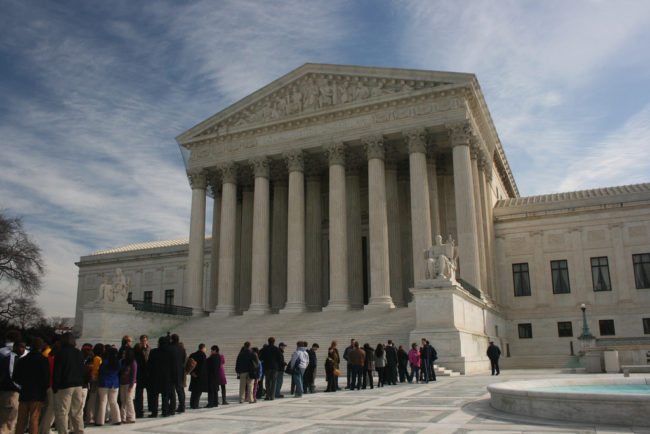
(Creative Commons photo/Supermac1961)
The Human Rights Campaign said the case “will either protect the fundamental equality of LGBTQ people, or set a dangerous precedent giving businesses a license to discriminate”.
HRC President Chad Griffin said: “At its core, this case is a cynical effort to manipulate the First Amendment in order to provide a license to discriminate against LGBTQ people and our families.
“The Trump-Pence administration’s decision to back discrimination in this case is another attack in their all-out war against the LGBTQ community.
“At every turn, they have sought to undermine the civil rights of LGBTQ people. It’s crucial that the justices reject discrimination and stand on the side of fairness and equality.”
HRC Legal Director Sarah Warbelow added: “In the United States, businesses that are open to the public get to decide what to serve, but not who they serve. The First Amendment cannot and should not be distorted as a weapon of discrimination.
“The ramifications of allowing people to pick and choose who they will serve could have severe consequences not only for LGBTQ people, but other minorities as well. Such a decision would put into jeopardy long-standing laws against discrimination across the country.”
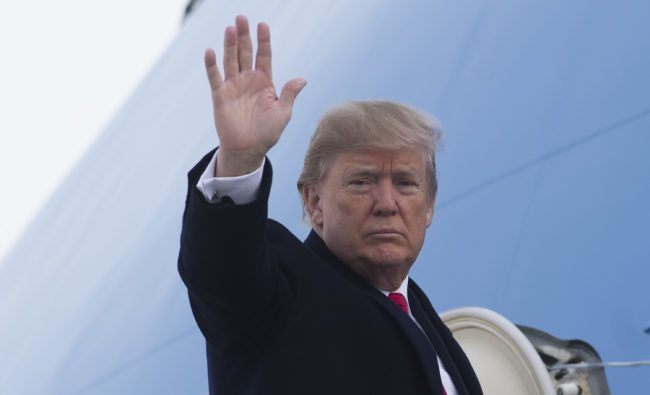
(Getty)
The baker was defended by hardline anti-LGBT law firm Alliance Defending Freedom, which has sought to undermine LGBT rights protections in a number of states .
Though the ADF is framing the issue around a religious objection to same-sex marriage, their other cases show a much wider support for licensing anti-LGBT discrimination.
For instance, they have sued a school district for putting in place a transgender non-discrimination policy, and defended a T-shirt printer who refused an order from a Pride celebration.
Sarah Kate Ellis, President and CEO of GLAAD, added: “The Department of Justice will pretend that this case is not about discrimination as they argue in front of the Supreme Court today, but that could not be further from the truth.
“While freedom of religion is paramount to our nation’s success, it does not give anyone the right to impose their beliefs on others, to harm others, or to discriminate.
“There is no sugar-coating the blatant and ugly agenda to discriminate against LGBTQ people at the core of this case, which is about seeking religious exemptions from non-discrimination laws for the singular purpose of refusing service to people simply because who they are.”
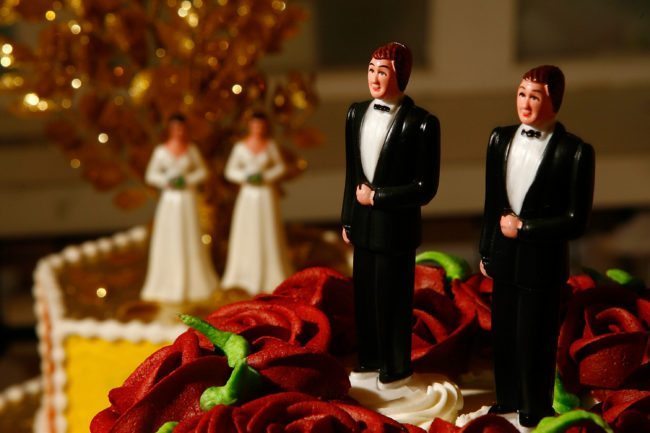
(Getty)
Of the case, GLAAD added: “In other commentaries, ADF staff members have pushed the notion that vendors like Mr. Phillips should be enthusiastic about an event if they are going to agree to work on it.
“Sure, it’s a nice idea. It’s also a legally meaningless one. In a perfect world, everyone who ever sells you anything, be it a good or a service or somewhere in-between, would be enamored with you and every aspect of your life.
“But a business owner’s excitement is an untenable standard, even more so for the business owners themselves than for the customers.”
It added: “One can discriminate ‘nicely’ or accommodate rudely, and it won’t change the issue.
“The issue is the discrimination or accommodation, not the smile or frown attached to those choices.
“It is silly to suggest that wedding professionals are somehow lacking in their job if they fail to make a ‘special and unique’ connection to a person who is paying them for their services.”
The American Civil Liberties Union and the ACLU of Colorado represent Mullins and Craig in the case.
James Esseks, director of the ACLU’s LGBT Project, said: “The law is squarely on David and Charlie’s side because when businesses are open to the public, they’re supposed to be open to everyone.
“While the right to one’s religious beliefs is fundamental, a license to discriminate is not.
“Same-sex couples like David and Charlie deserve to be treated with the same dignity and respect as anyone else, and we’re ready to take that fight all the way to the Supreme Court.”
86 Republican members of congress have also signed an amicus brief to the US Supreme Court supporting the baker’s right to discriminate, while the Democrats have largely sided with the gay couple.

